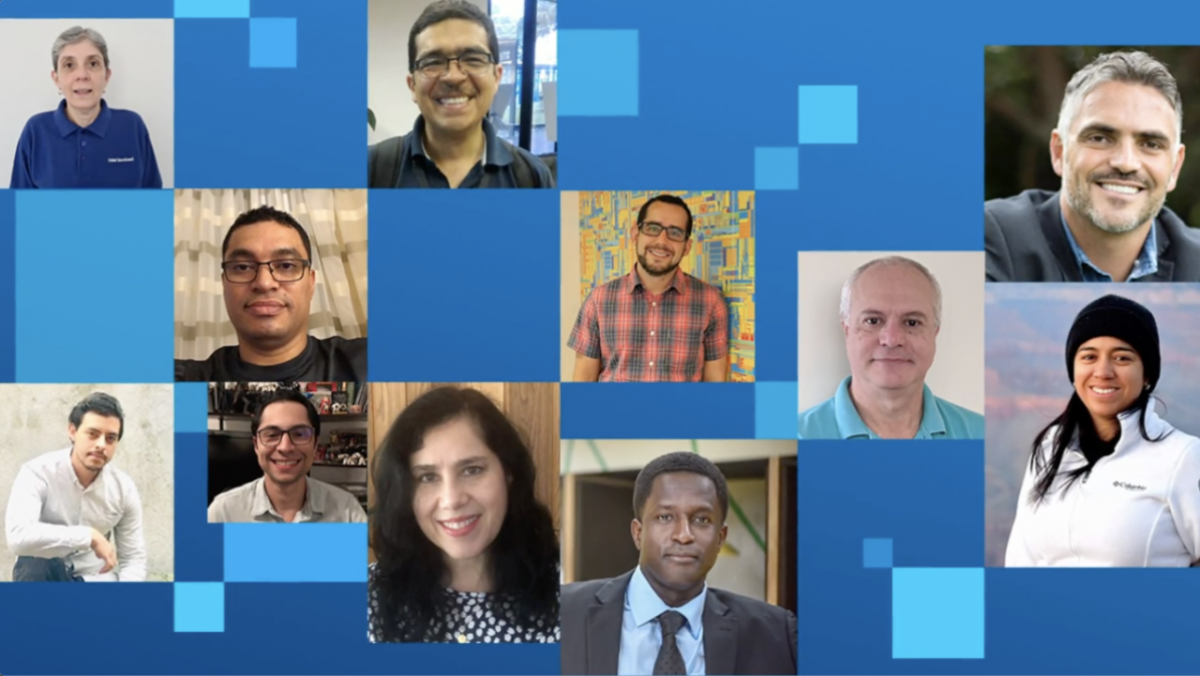How Intel Employees Volunteered Their Data Science Expertise To Help Costa Rica Save Lives During the Pandemic

What do you do when a terrifying pandemic that has shaken the globe threatens to overwhelm your country? For Intel employees in Costa Rica, the answer was to offer their problem-solving expertise—and over 1,000 hours of highly technical work—helping the government develop an effective response plan.
In the early days of the pandemic, the uncertainty of how quickly the virus would spread and how severely it would impact communities made healthcare availability and resources a top concern. Feeling they could use their technical expertise to help, a group of Intel employees reached out to the Caja Costarricence de Seguro Social (CCSS), Costa Rica’s main agency responsible for its public health sector.
Luis D. Rojas, one of the volunteer co-leads for the Intel team (seen here wearing a plaid shirt), laid the groundwork with CCSS to understand where help was needed, and with that, the team quickly began iterating on a statistical model to project anticipated demand for hospital beds and ICU capacity. With their combined expertise in data science, statistical process control, and machine learning system deployment, the team was able to pool their areas of knowledge to present their model and recommendations to the CCSS agency, and even the President. Ultimately, their project became one of the key modeling systems used by the government to inform their pandemic response.
Luis, and the rest of the Costa Rica team provided what’s called “skills-based volunteering,” in which volunteers leverage the skills they possess the most expertise in to help address community concerns challenges.
“What motivated me to help was my parents,” said Jonathan Sequeira Androvetto, data scientist and volunteer co-lead. “Both of my parents are in the high-risk population, and knowing that what I was doing was helping my country and my family was incredible. Volunteering in this way gave me a lot of positive energy – it was recharging.”
Jonathan and the other volunteers used their expertise in data science and statistics to help the government understand how their containment policies would affect virus reproduction rates and potential hospital and ICU utilization. The team also developed a dashboard intended to be shared with local governments to summarize the state of their cities in terms of how the pandemic is behaving. The dashboard includes metrics such as the growth rates of certain reproduction rates (R) / active cases in respective cities, as well as a 21-day projection of new cases / active cases, if the R trend is sustained in the near future.
“You get back more than you give,” shared volunteer co-lead and machine learning engineer Jenny Peraza, on why she went above and beyond to apply her skillset to supporting the government’s pandemic response. “When I began this project, it was from a place of intellectual curiosity. It evolved into so much more, and it’s been incredibly gratifying to be able to put my process excellence and statistical knowledge towards successfully containing and managing this problem.”
The Costa Rica team proved that a coordinated volunteer effort, especially one that maximizes specific skills, can make an increased impact on local and national communities. From a small idea to a national effort, the team was able to come together to help a community much larger than themselves.
When the pandemic is over, both Jenny and Jonathan have plans to continue their skills-based volunteering. Jonathan shared, “Giving back to my country in this way has been phenomenal, and the positive energy and relationships I’ve made through the course of this project – both within and outside of Intel – have meant so much.” Added Jenny, “There are a wealth of resources and opportunities out there, sometimes it’s just a matter of finding the right fit for you to apply your knowledge and skills to help make your community stronger.”

